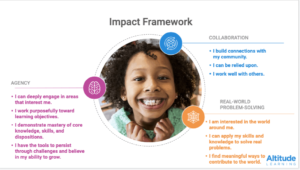What You Need to Know About Online Learning Today

By: David Miller
The higher education and corporate training worlds are currently being severely disrupted by online courses and other new learning technologies. More courses are moving online, and more students are taking them. Today, you can find both formal and informal online courses available on just about any subject you might want to study. Many of the courses are even free.
But in the midst of all of this rapid change, it’s essential to step back and look at the bigger picture. First, we need to determine how online learning fares in comparison to traditional learning and what are its key benefits.
As it turns out this isn’t such an easy question to answer. There are as many different types of both traditional and online learning as there are chocolates in an assorted box. In addition, it is hard to directly compare online and face-to-face learning as their main target audiences are slightly different (the majority of online learners are adults, while traditional learning caters more to the college-aged crowd). However, enough research has come out lately that we can start to get at least an idea of how online education compares to traditional, in-person education.
Here are some recent findings about the growth of online learning:
- In 2009, SRI International wrote a report for the Department of Education in which it assessed online versus traditional learning in various settings (K-12, college, adult education) over a 12-year period. After conducting a meta-analysis, the authors concluded that “on average, students in online learning conditions performed better than those receiving face-to-face instruction.”
- A 2011 study of more than 600 college students taking introductory statistics at various public universities found that those who completed their course online with one hour of weekly in-class instruction performed slightly better than those who completed a traditional course. The difference between the groups was not statistically significant.
- A report released this year by the Public Policy Institute of California found that community college students were less likely to complete online courses than traditional courses. However, students who took both online and traditional courses were more likely to earn degrees and more likely to transfer to four-year colleges than those who took traditional courses alone.
- In a 2013 survey of online college students, a whopping 96% said that the online program was worth the investment in terms of both time and cost.
The picture this information paints is a positive one. Overall, online learning appears to be at least as good as, and in some cases better than, traditional learning, and the results are even better when the two formats are combined.
These studies also suggest a future in which online learning flat-out surpasses traditional learning on a variety of measures. In the whole scheme of things, while the dominant forms of traditional learning have been around for centuries (if not millennia), online learning is still relatively new. Teachers are still figuring out the best ways to do it, and researchers are still assessing its various components. In many cases, what they are finding is that what students do in class is significantly more important to their success than is the delivery modality—students who participate in active learning and who have the support they need outperform students who do not, regardless of whether the course is online or in-person.
Online learning is in many ways still in its infancy, but a variety of factors are converging that suggest it will be an even better method of education in the future. For example, learning technologies are improving on what feels like a daily basis, and both students and teachers are becoming more comfortable with online learning platforms. As these trends continue, online learning will only become more engaging and more effective.
David Miller is an educational researcher who has vast experience in the field of teaching, Learning management system and training. He is associated with prestigious universities and many leading educational research organizations. He’s also an ed-tech veteran, currently pursuing research in new eLearning developments and contributing author with ProProfs.





0 Comments
Leave a Comment
Your email address will not be published. All fields are required.